It once seemed like a pie-in-the-sky dream to work and travel abroad. But with the advent of the remote work economy, it is an exciting and increasingly attainable opportunity.
More people are living abroad than ever, according to a 2013 United Nations study. And the number who work remotely while traveling is on the rise, with 4.8 million American workers describing themselves as "digital nomads," and 17 million more (or 11 percent of the population) aspiring to do the same someday, according to research by MBO Partners.
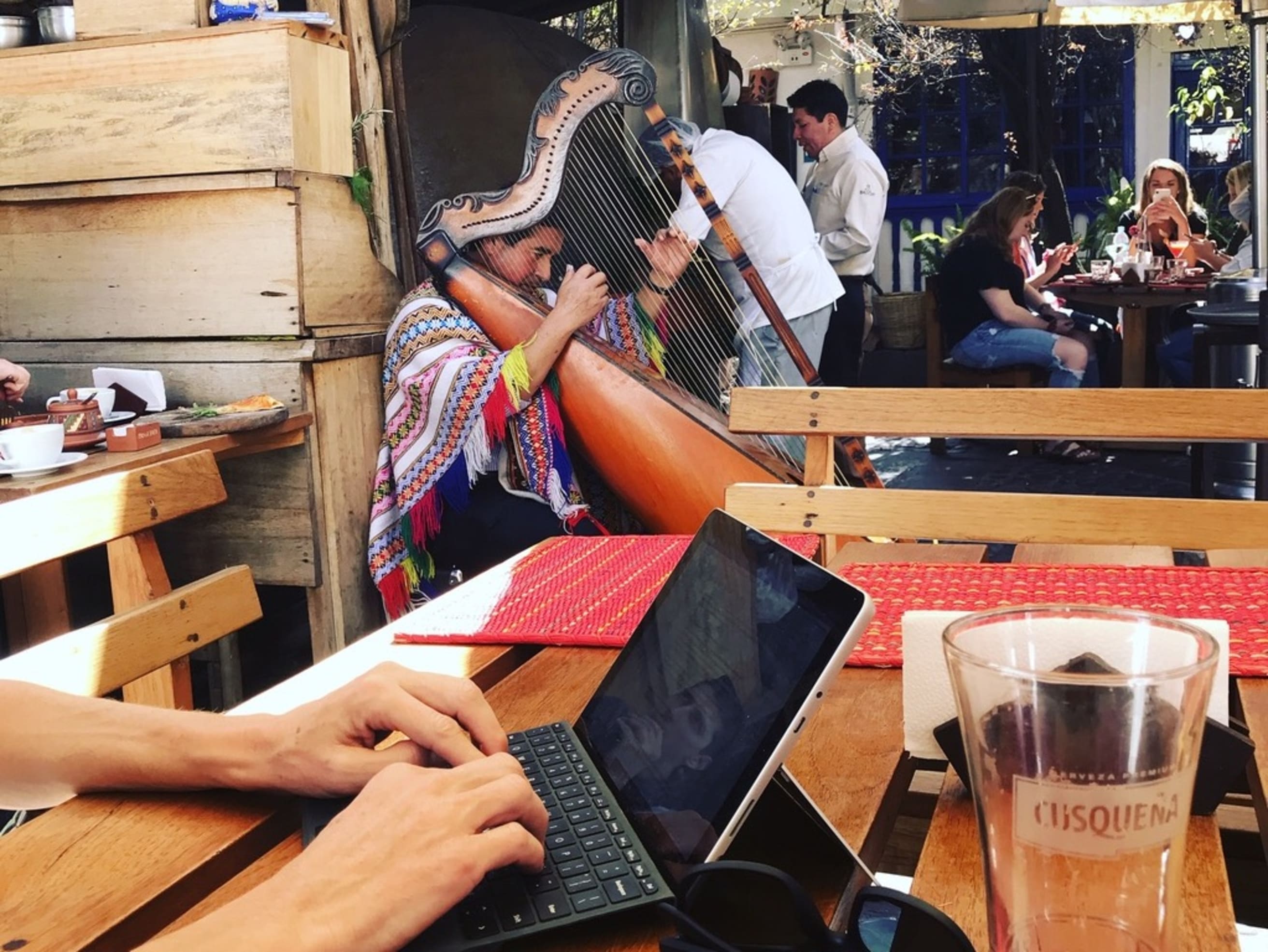
But as great as unlimited travel around the world sounds when you’re sitting behind your desk shoveling in your lunch and answering email after email, don’t expect the digital nomad life to be one big laptop session on the beach with a piña colada.
Being a digital nomad — or one of the many other types of workers who mix work and travel — requires dedication, planning, self-awareness, a tolerance for uncertainty, and a good deal of time indoors working (or outdoors, if you can swing it).
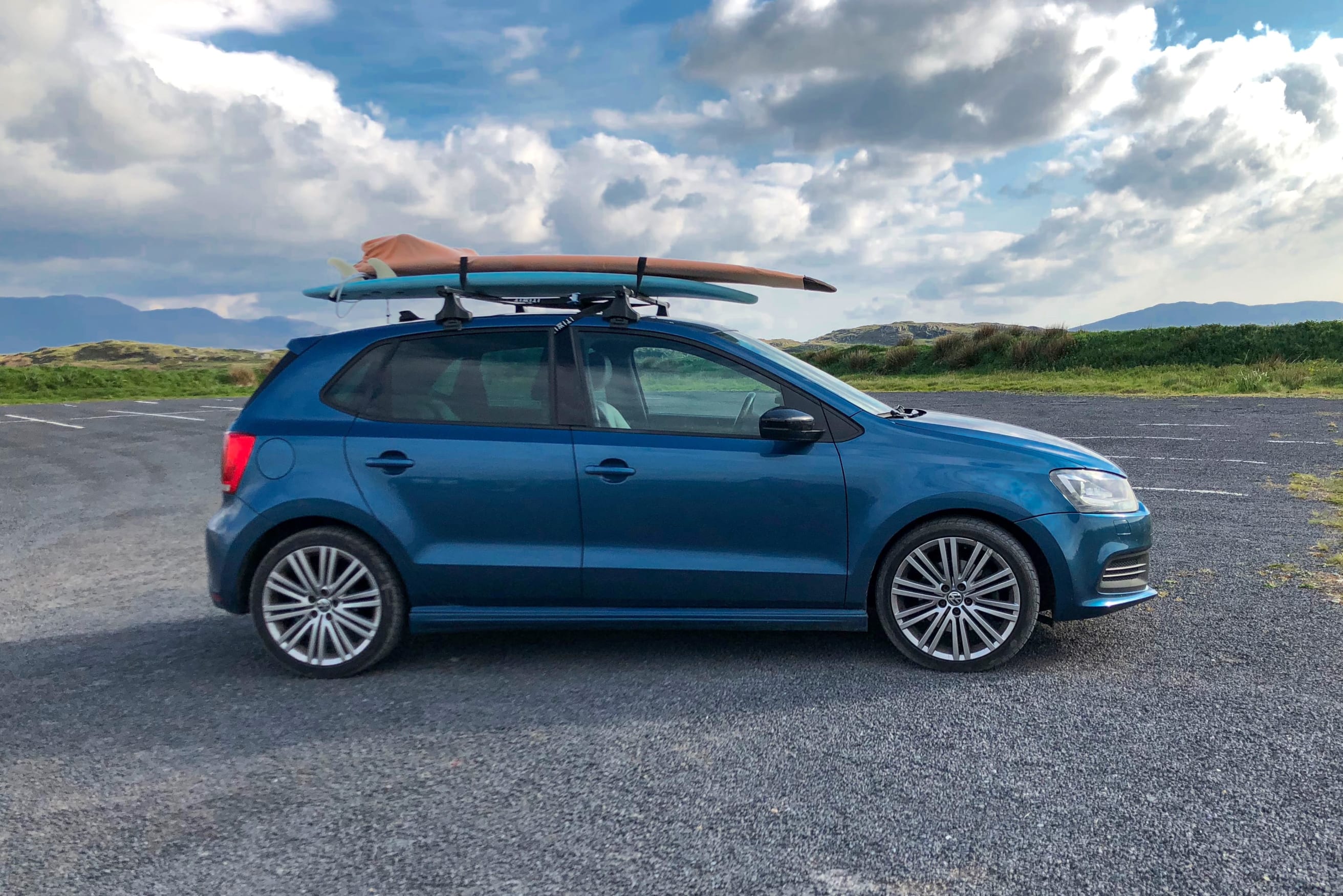
And that comes on top of perhaps the greatest challenge of a rootless lifestyle: loneliness. As Doist CEO Amir Salihefendic writes about his experience living abroad in his early 20s: “I was living a traveler’s dream with no strings attached. At the time, I had no idea that this would be the start of the unhappiest period of my life.”
Other people have expressed similar sentiments (see this Ycombinator thread, thoughts from writer Karen Marston, and an Atlas Obscura article about remote work travel program Remote Year's rocky first year).
My own experience teaching English abroad in France this past academic year — and having a lot of vacation time to travel — helped me realize that whether I live in the United States or abroad, I like having a home base. Otherwise, I feel lonely, isolated, and stressed from balancing work and travel.
Even at a fully remote company like Doist, only 3 of 68 employees are true digital nomads — traveling while working.
That doesn’t mean digital nomadism isn’t worth it. There’s a reason it crosses the mind of so many of us. If you keep coming back to something, it may be a sign that it is worth it to go through the challenge of actually doing it and finding out if it’s right for you, rather than never know.
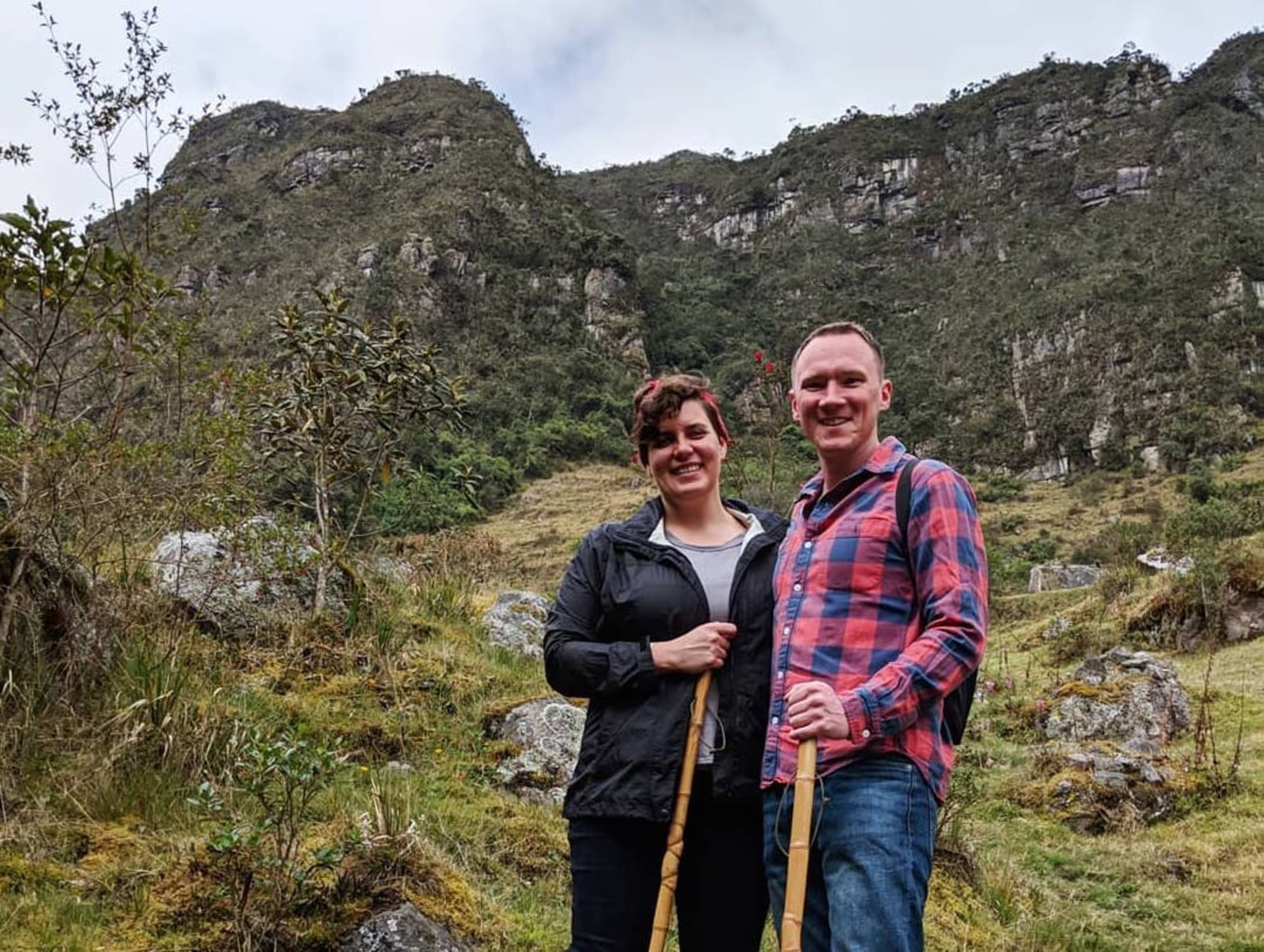
“We’ve learned more in the last eight months about the world than we have in many, many years. We try new foods, we go to amazing new museums … all the fun stuff that comes with travel,” says Jessica Bell who, with her husband Seth Puckett, is chronicling their two years working abroad as software engineers — so far in Latin America and Berlin. “But it comes with an equal amount of frustration.”
If you dream of living abroad, whether to see more of the world, reset your life, or save money, you can avoid some of the common pitfalls by going into it prepared and with a realistic attitude and expectations. This guide will help you make the digital nomad life work for you — and stay productive in the process. (And like any good guide, much of it comes from things I and others wish we had known).
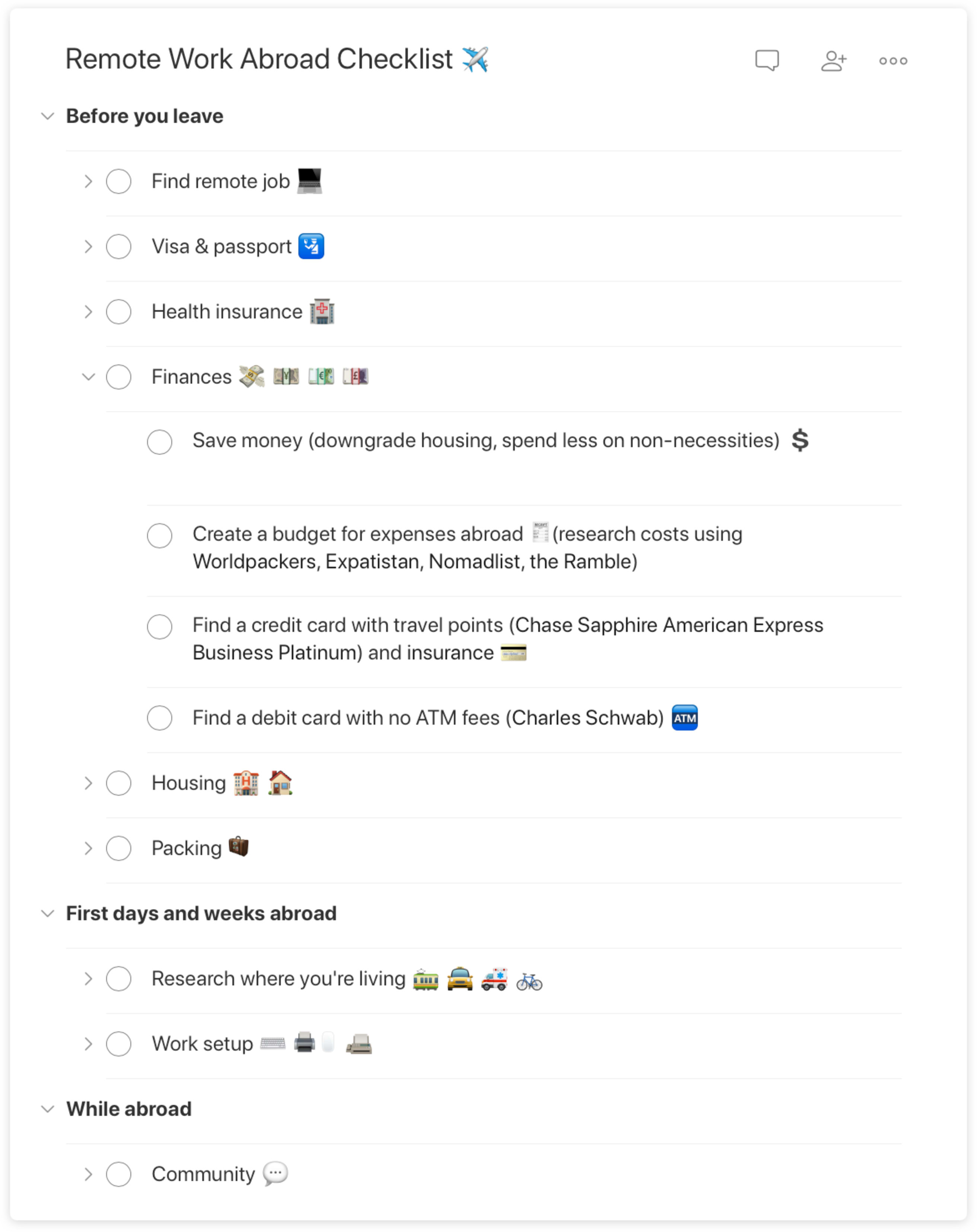
Before you leave
Many people I talked with for this article started planning a year or more in advance before they left, both in winding down matters at home and preparing for the journey abroad. Here are a few of the key areas to focus on:
Find and get settled in a remote job
Going from an office job to remote work is a huge adjustment on its own. It involves much more time alone. It forces you to communicate differently with your colleagues. It requires a lot of self-motivation. And it means dealing with extra tax and health insurance bureaucracy if you’re a contract or freelance worker.
For these reasons, it's wise to lock in a remote job before you leave, so you can get acclimated. Adjusting to a remote lifestyle at the same time as to living in a new country is a lot to handle, even for the most adventurous of us.
In almost all discussions about remote work I have to first explain the difference between:
- digital backpackers
- workation tourists
- digital staymads
- remote workersVery different people with very different lifestyles and needs.
— Andreas Klinger ✌️ (@andreasklinger) July 1, 2019
I left my full-time job in New York City to freelance seven months before I left for France last year, which gave me time to research tax implications, establish remote relationships with clients in the U.S., and figure out my daily work rhythms — specifically, that I’m someone who needs to work around other people at a coffee shop or coworking space or risk going crazy.
Many digital nomads recommend finding a job at a remote-first company — where most if not all of the workforce is dispersed — rather than at a company where you’re one of the few who work offsite.
“Here it’s part of the culture,” says Ben Breckler who is a product designer at Doist and has been traveling with his girlfriend in France, Portugal, and Ireland for the surfing. “If the people in the company weren’t so supportive, with all of the frameworks that are in place, I would think twice about [traveling abroad].”
Get your ducks in a row with visas, passports, and insurance
You need a visa to live abroad if your country does not have a policy or agreement that waives them. When such agreements exist, they usually last for a short period — from three to six months.

Check with the embassy or consulate website of the nation where you’re planning to travel to find out if you need to apply for a visa. Unless you are planning to stay for more than three months, it’s usually enough to get a tourist visa. Apply early, as the process can take several months, depending on the country and type of visa.
Chase Warrington, who works in business development for Doist, and his wife Allison, left their house and settled life in Asheville, North Carolina, to live in Valencia, Spain, in January 2018, along with their 50-pound husky Koda. They obtained long-stay visas for retirees, which remote workers can also take advantage of in certain circumstances.
“Double and triple check, ask multiple people, ask lots of questions,” Warrington advises about the often complicated visa process, which took him and Allison around eight months.
Many countries have special visas for people with certain qualifications or who fit certain demographics. Here are a few:
- New Zealand has a 12 month working holiday visa for people of many nationalities ages 18-30.
- Germany has a residence visa for the self-employed.
- The Netherlands has a visa for foreign entrepreneurs and scientists.
- Ireland has a visa for recent university graduates (graduate school as well as undergraduate).
- Canada has a visa for self-employed immigrants and skilled immigrants.
- Mexico has a temporary resident visa.
- Generally, Canadian citizens can stay in the U.S. and American citizens in Canada without a visa for six months.
Another option is to see whether you are eligible for citizenship in another country based on your ancestry — but be prepared for a long process with many documents required. (I’m applying for naturalization in Germany, which is currently estimated to take two years).

Make sure your passport is not close to expiring. It’s a good idea to renew it before you leave your home country, even if you still have some time on it, as you never know how long you may want to be abroad.
Though many nations have universal health insurance, if you’re not a citizen or don’t have a work visa, it’s likely you won’t be eligible. Chase and Allison bought private insurance in Spain. Though more expensive than the country’s national system, it is significantly cheaper than buying insurance in the U.S. That’s usually the case for Americans: even private plans in most parts of the world cost less than health insurance in the U.S.
Go Abroad has a great guide that explains health insurance abroad and how to get it. Before you leave, you may want to stock up on any prescription medications you take in your home country, so you don't have to navigate that while abroad. And prepare yourself by researching primary care doctors and emergency care options at your destination.
Budget and find financially advantageous credit and debit cards
A draw of digital nomadism is working in places that are cheaper than home, such as Eastern Europe, South America, and Southeast Asia. Still, it's smart to start saving money and budgeting before you go. Here's some advice on the financial front:
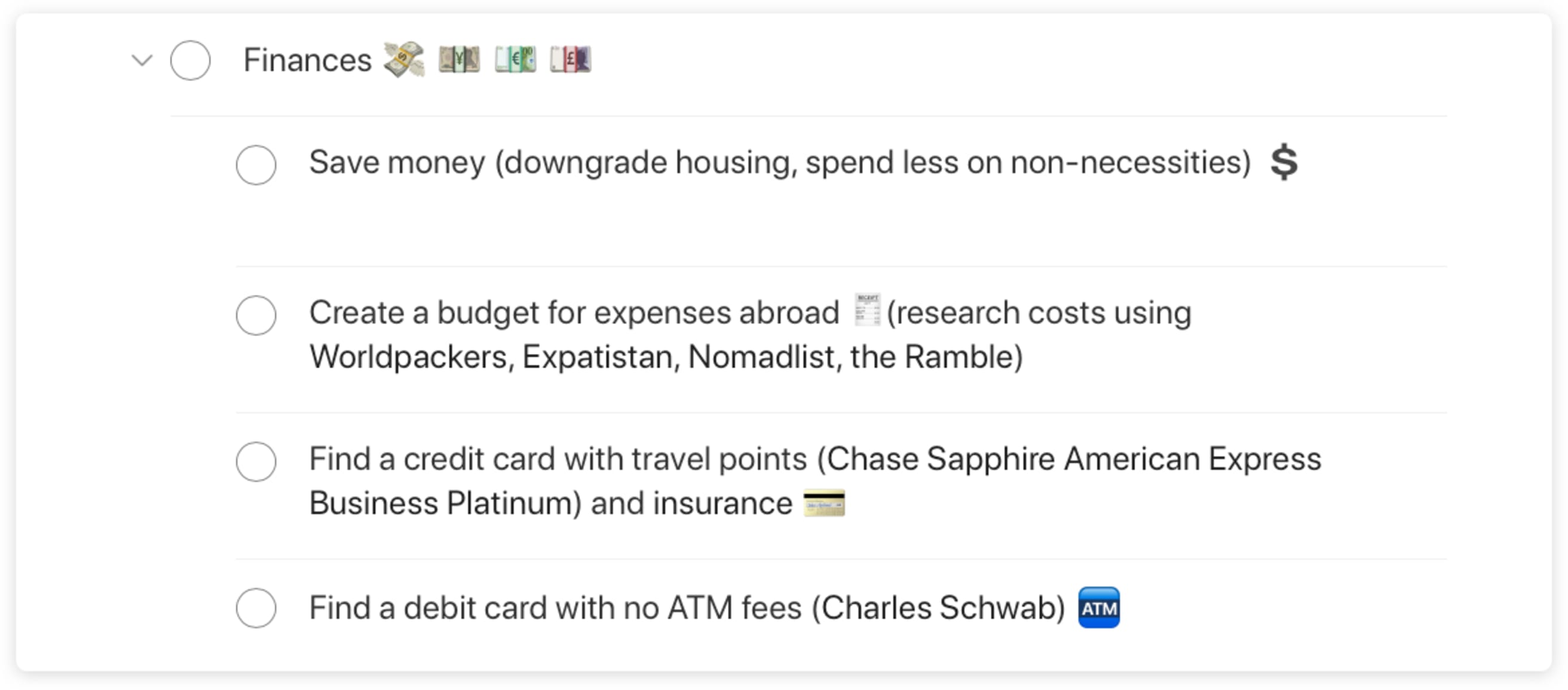
- Save money, whether that means moving into a cheaper place or cutting back on dining out and other non-necessities.
- Budget by anticipating the costs of your biggest expenses abroad: travel, housing, food, and insurance. Since you’ll likely be spending more on travel than if you were living at home, plan to save in other areas when abroad. Anticipate costs with Worldpackers’ list of the cheapest cities, Nomadlist, and Expatistan's tool to compare the cost of living between your current city and others. Gigi Griffis of the Ramble also has a helpful list of expenses for different cities where she has lived.
- Find a credit card that comes with travel points, like the well-rated Chase Sapphire Reserve Card or the American Express Business Platinum Card, and with good travel insurance.
- Find a debit card that doesn’t have ATM fees, or that refunds them, like the Charles Schwab High Yield Investor Checking Account (The world isn't cashless yet).
Finally, don’t be too hard on yourself for mistakes — it is probably better to just expect them. “You’re going to lose money doing stuff because you’re going to do things wrong — to accidentally order something you thought was for two people that was for 16 people. You’re going to want to bail on stuff if you’re not feeling good, you’re going to want to pay extra,” says Bell.
Find housing
Those with whom I spoke almost uniformly recommended starting off by finding a place through Airbnb, the popular home share site. Using it led several to longer term stays, either at the same place or through friends of the owner. If you’re staying for a long time, you can try to negotiate a discount with the owner.
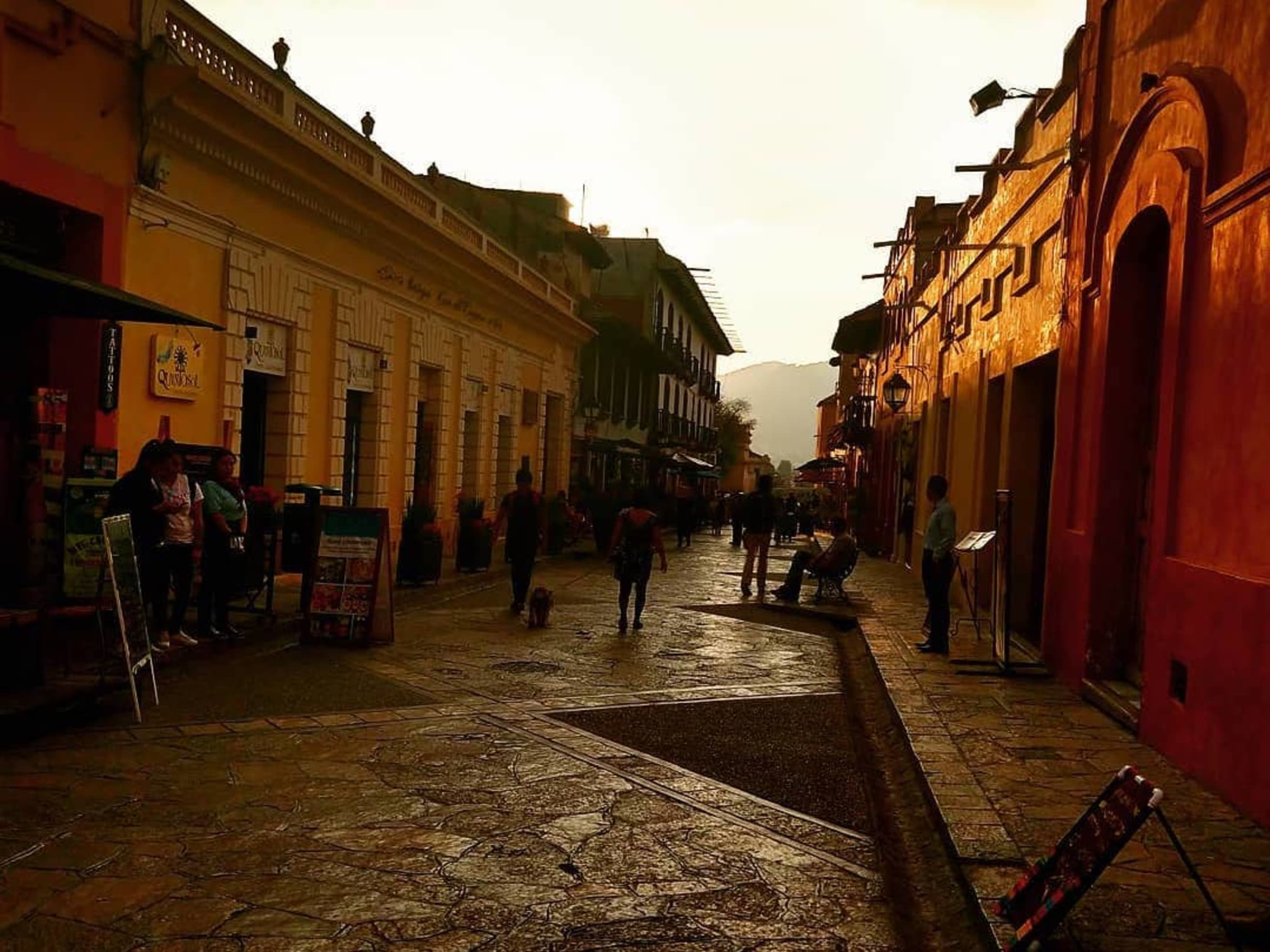
“That process could have been a challenge, but we actually got really lucky,” says Warrington. “Our Airbnb host happened to have a good friend who had an apartment that was becoming available.” Check out these resources for housing:
- Airbnb now has a “sublets” section for longer stays.
- Homeaway and Wimdu offer similar services to Airbnb.
- Homestay and Homestayin offer the option of staying with a family.
- Worldpackers, Wwoof, and Workaway offer work exchanges for free housing.
- Home swapping websites like Home Exchange let you trade homes with others around the world, and Couchsurfing lets you sleep on someone's couch — or make yours available.
Of course, it’s never going to be the same as living in your own space.
“You don’t get control over any of your spaces anymore. You’re in someone else’s space,” says Bell.
Pack smart
It’s the easiest advice to give and perhaps the hardest to follow: pack light. Here are a few tips that will at least help you make a valiant effort:
- Pack around what kind of activities you plan to do, and be realistic about what you will not do.
- Get a quality, space efficient, carryon sized rollerboard and a backpack. For rollerboards, I love the Travelpro recommended by Wirecutter. I’m less of an expert on backpacks, but check out Indie Traveller or Travel and Leisure.
- To pack efficiently, try travel cubes and vacuum compression bags (there’s some debate about which works better). There are also many opinions on the best folding methods. Lifehacker naturally has a breakdown comparing all of these strategies.
- Pack in a “versatile, monochromatic color scheme,” suggests Pack Hacker in their helpful, if a bit intimidating, digital packing list.
- James Clear somehow manages to travel around with only one pair of pants and has advice for ultralight travel.
- Try to pack as few shoes as possible — admittedly very difficult.
- Pack for a week, and “do not pack for eventualities and ‘just in case’ situations,” says Hobo with a Laptop.
- Research digital nomads’ packing lists online (there are an overwhelming amount! Here are a few: James Clear, the Deep Dish, Hobo with a Laptop, Packhacker, Worldpackers, Nomadlist, Generic Dreams, Travel Fashion Girl, Finding the Universe).
- Travel based on the seasons. Bell and Puckett are spending their time in places where it’s summertime, so they don’t have to worry about winter clothes.
Research the basics about where you will be living
Head off confusion upon arrival by researching in advance basic facts of life about the country and city where you will be basing yourself. Here are a few questions:
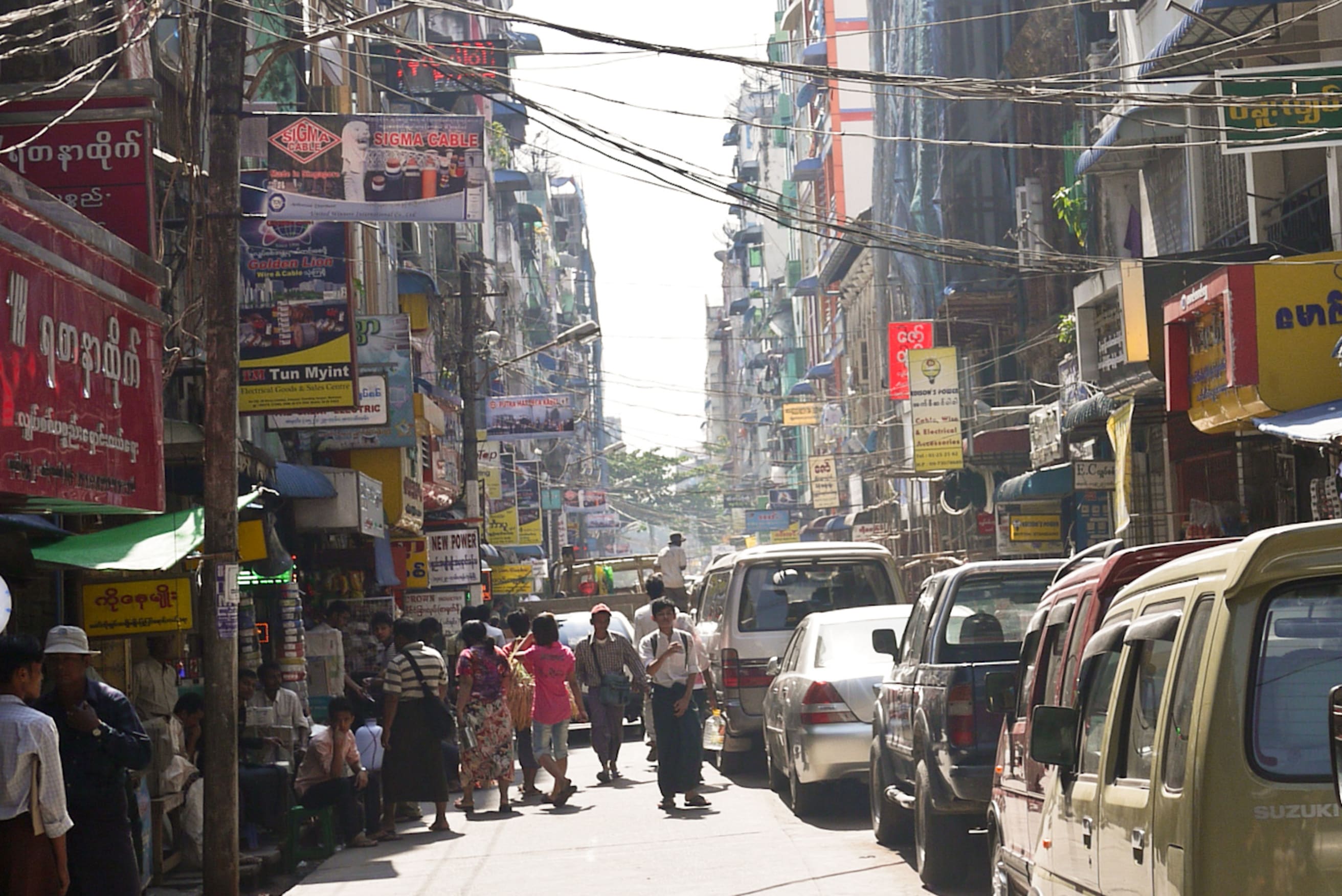
- Find out local modes of transportation: is there public transit? a bike share program? cabs or other ride shares?
- Tipping situation: Is tipping a convention? If so, how much?
- What is the address of the nearest embassy or consulate.
- What is the local currency and exchange rate?
- What are the emergency number(s)? Add them to your phone. Not every country uses 911.
- What are basic words and phrases (if you're not in a country that speaks your native language), such as “hello,” “how are you,” “how much does this cost,” “I’ll have,” and “thank you"?
- Where do you go for a health emergency?
- How do you get from the airport to where you’re staying? (Your Airbnb host should have recommendations.)
First days and weeks abroad
One of the most unexpectedly time consuming aspects of the digital nomad lifestyle is figuring out a reliable work setup, including wifi, space, and navigating time zone differences. In your first days and weeks, work on setting up a comfortable space and establishing a routine.
Give yourself time to setup your work environment—and be prepared to make adjustments
When you’re traveling between destinations, make sure you have at least a day before you need to start work. Use this buffer period to check the wifi situation, find a coffee shop or other office space, and get the lay of the land.
[app_block_wide]
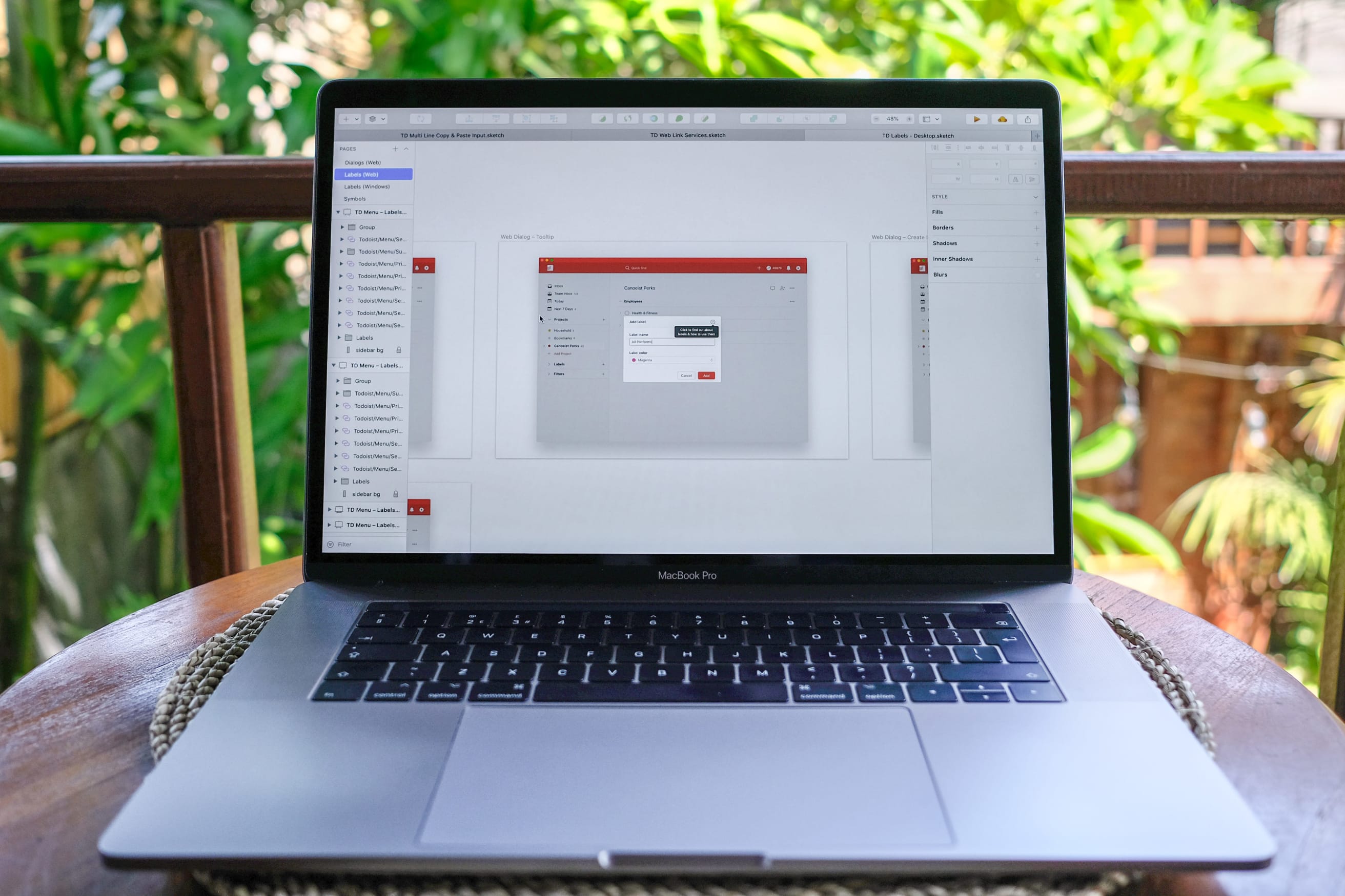
There seems to be a universal law that we never give ourselves enough time to set up and troubleshoot tech. Whether you have to spend time entering bafflingly long passwords that seem to be the norm in France or you need to download three VPNs because of China’s famous firewall, you will want to give yourself time so you’re not scrambling before an important phone call.
Wifi
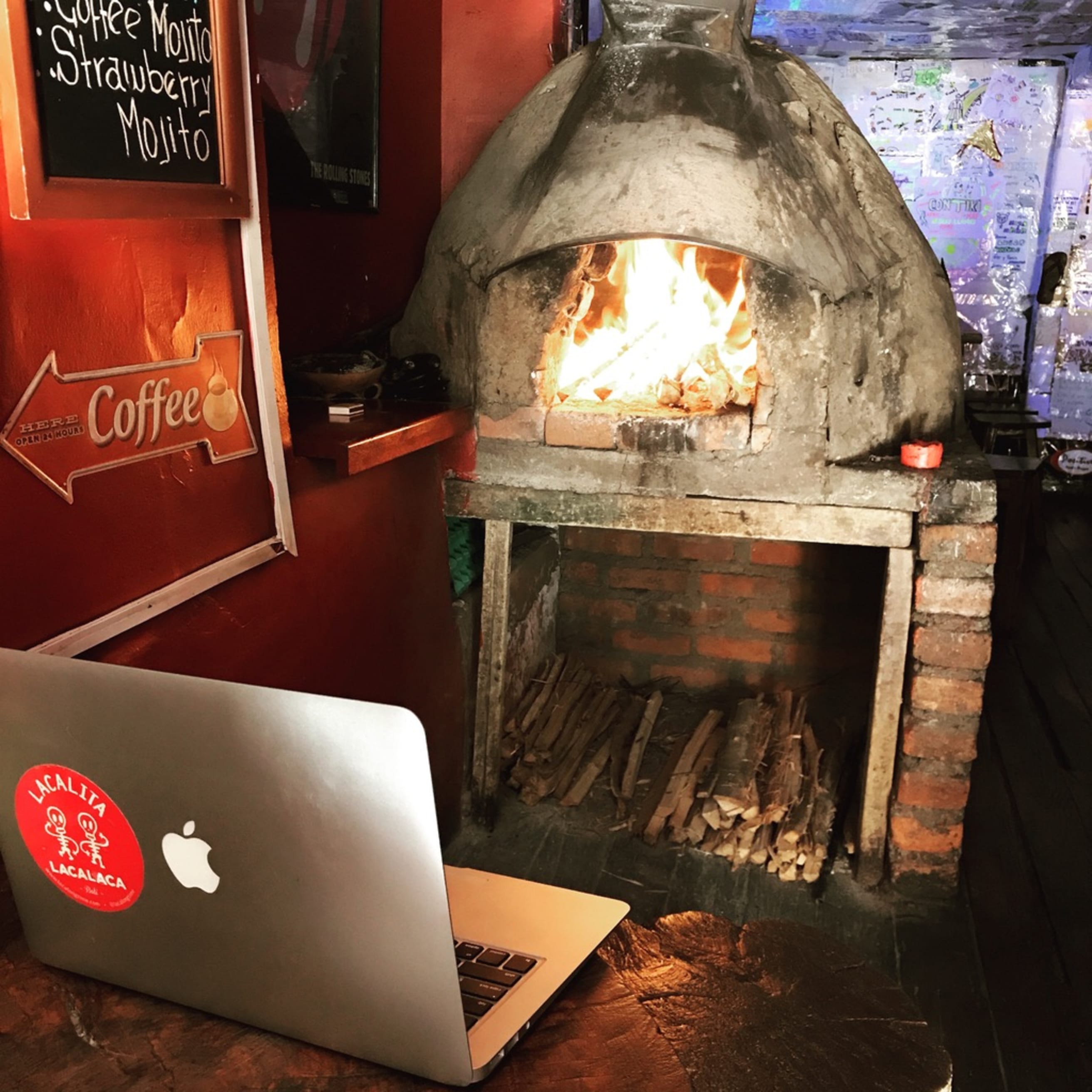
It's especially likely, if not guaranteed, you'll have a wifi connectivity problem at some point. Here are a few ways to avoid issues:
- Is your wifi speed fast enough for your needs (Check your speed at fast.com)?
- Get a SIM card for a carrier of the country you’re in, and get a very high or unlimited data plan on your mobile phone so you can set up a hot spot.
- Check in with your Airbnb or other lodging in advance to make sure they'll have working wifi when you arrive, and find out what the speed is. Just because wifi is advertised doesn’t necessary mean it will always work.
- Sign up for a coworking space. Check out the Coworker for a searchable list and map of spaces around the world.
- Find coffee shops that are good to work from (good wifi, plenty of available outlets, won’t try to shoo you out after an hour) with resources like Workfrom.co, Coffices, or Workmode.
“If I can do calls from a mountain in Rwanda, I can pretty much guarantee you can make it work,” says Shannon O’Donnell, who started traveling the world and and working remotely in 2008, which she chronicles on her blog A Little Adrift.
Other tech requirements
Here’s a checklist to help you handle other tech requirements:
- Do you have a call that requires the download of a special software, plugin, or browser?
- Do you need to install a VPN because you will be somewhere with a firewall?
- What’s your nearest computer service store in case you have a tech emergency?
- Do you have the right adapter for your country?
- Do you have a travel-friendly external battery for when your computer is dying and you can’t find an outlet?
Set a work routine
It’s as important — if not more so — to set a work routine when traveling than when at home to support your productivity. There’s nothing worse than not being able to truly enjoy where you are because you feel guilty about not getting enough done. Given all of the unknowns you must deal with when traveling, putting as many decisions on automatic ahead of time will help you conserve your mental energy.
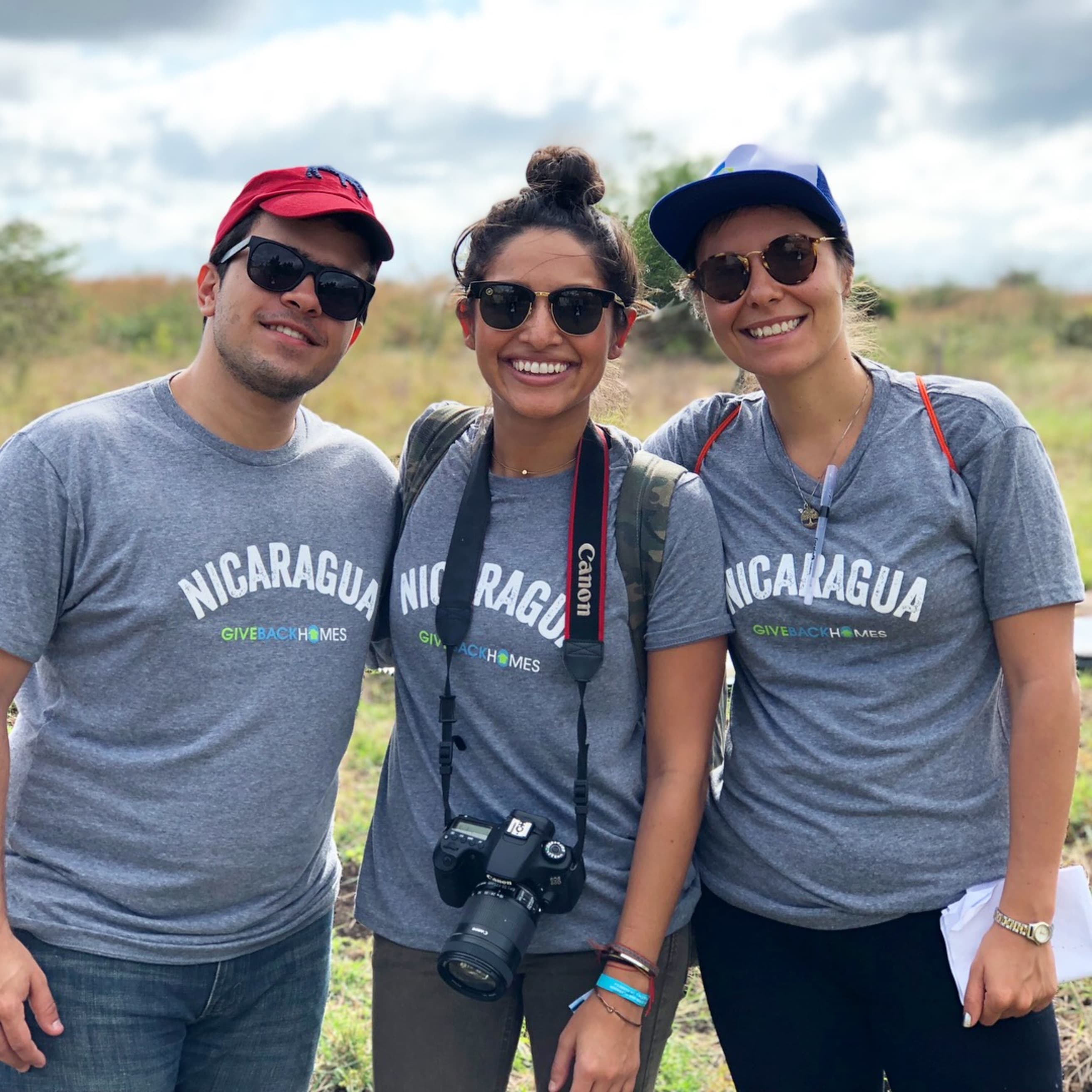
If you travel between locations frequently, you may have to adapt to where you work — on trains and plane for instance. Still, there may be some settings and times of day where it's more practical to just sleep or stare out a window than try to squeeze more work out of yourself.
"Figure out when the times are that you’re most productive for the tasks you’re trying to accomplish, and build your schedule on that,” says Caroline Pinal, founder of Giveback Homes, an organization that helps the real estate industry work for social good and that encourages its employees to travel and work. “Do you like to work on airplanes or not, or would you rather be sleeping? Do you like to work at a cafe, or are you easy distracted?”
Get ready for time zone adjustments
If you work for a remote company that practices asynchronous communication, time zones may not be a big issue. But if you have clients or work for an office in another part of the world, you will likely need to consider the time difference and make adjustments on your end.
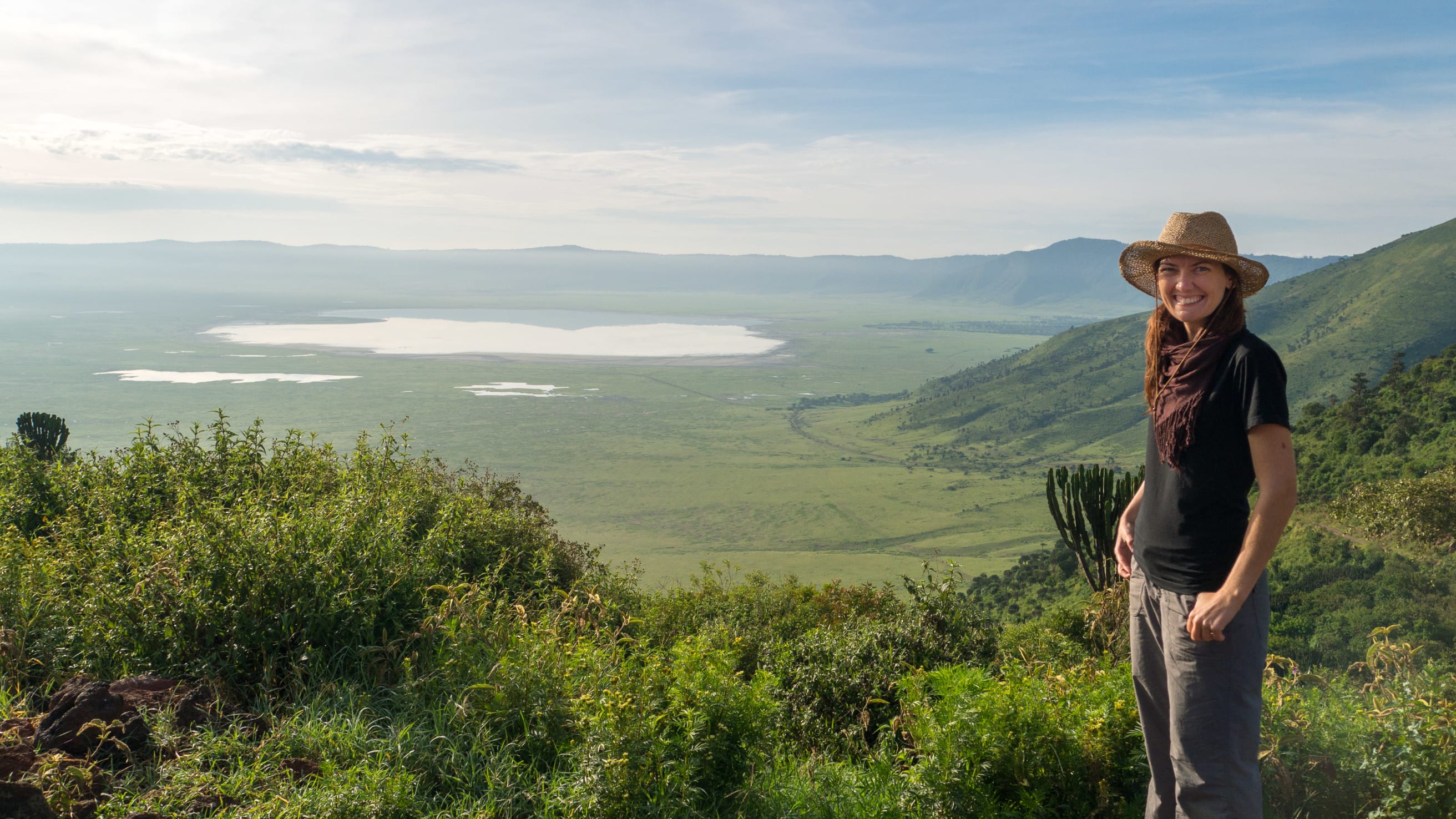
When I lived in France, I sometimes had to conduct interviews for articles and do other phone calls during my evening, because that's the afternoon in the U.S. Hours can be even crazier in other parts of the world.
“In Africa I took several 3:30 am meetings to be able to keep my clients happy,” says O’Donnell. “It’s not your right to switch time zones on your clients every three months, every week. That’s not the way the rest of the world is working yet.”
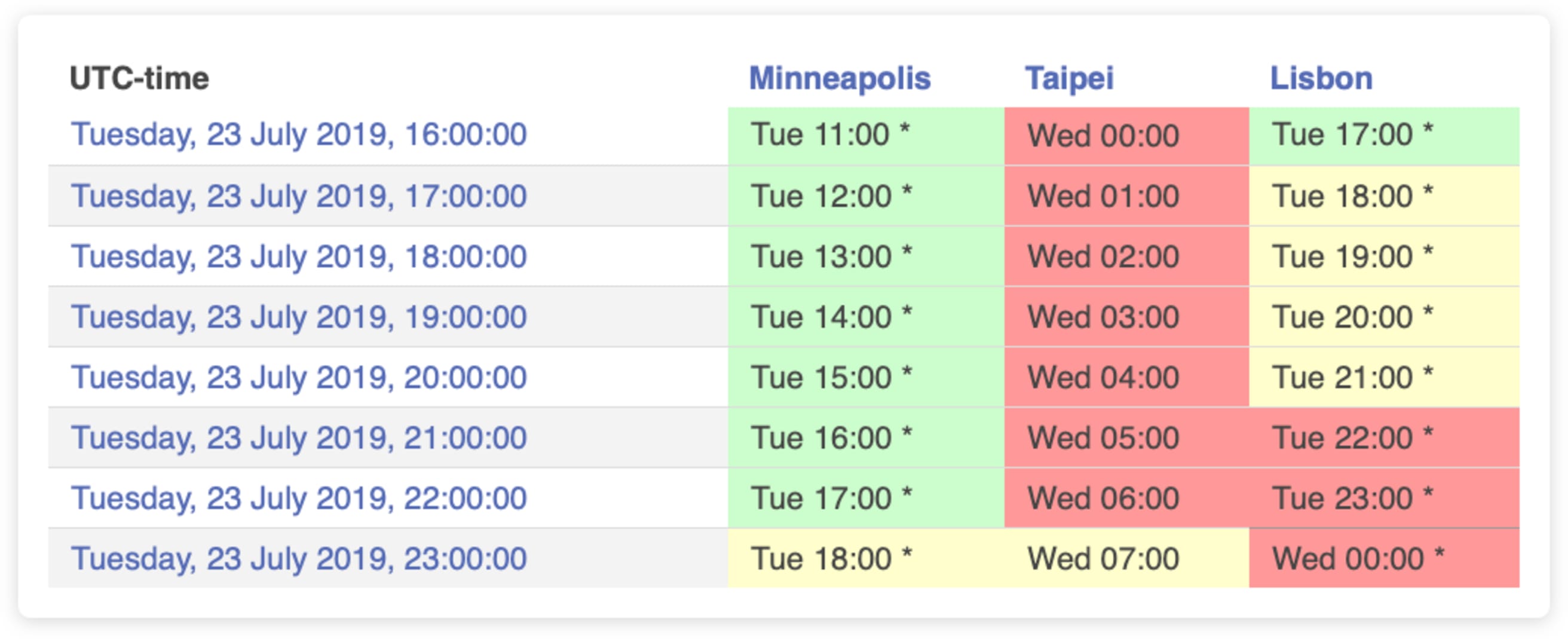
There are several great time zone apps to help you avoid getting mixed up, including the Time and Date Meeting Planner (the popular app Doodle also lets you take time zone into consideration); Every Time Zone, which helps you visualize what time it is in different parts of the world; the simple and self explanatory Time Zone Converter; Google’s Boomerang, which helps you schedule emails so you don’t have to bother a client during their off hours; similarly Right Inbox, another email management tool, helps you schedule emails to be sent later and use email reminders and templates too.
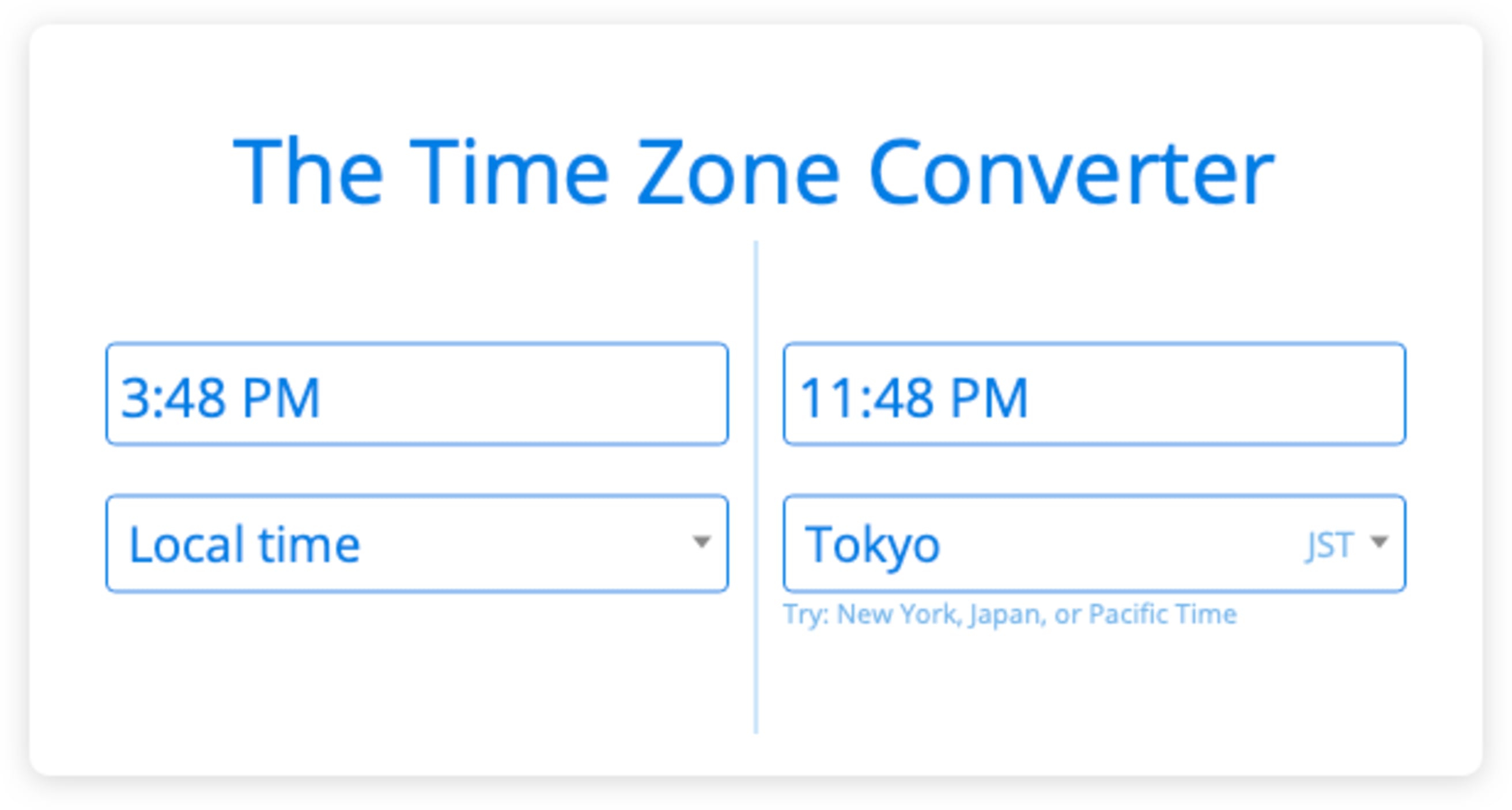
You can also try to manage expectations with an automatic e-mail response message that clarifies what time zone you are in and within what hours people can expect a response. Lisa Munro, a writing coach and director of a university study abroad program who lives in Mérida, Mexico, practices a version of this with a message that says: “My working day may not be your working day. Please do not feel obliged to reply outside of your normal working hours. I also respect your time and hope to reduce unnecessary email.”
While abroad
Finally, the fun part: traveling! While you'll want to plan travel ahead, there is a lot you’ll have to learn on the go. Be prepared to adjust your plans and revise your approach to traveling with the following guidance.
Get used to vacationing differently
Working abroad is not a normal vacation. “Your entire idea of vacation has to change,” says O’Donnell.

Because you’ll be working and traveling at the same time, alternating between sightseeing and relaxation is not the default mode, as with a vacation. As a digital nomad, traveling may often be stressful, and you will have to make the effort to take advantage of travel opportunities — beyond just having a good view of the beach from a coworking space.
“Instead of Netflixing at night, you’re filling your travel into the space where you used to live your normal life,” says O’Donnell. She prefers to fit sightseeing into a work day, working for four or five hours in the morning and then getting outside for lunch or in the evening and doing some sightseeing.

It also helps to dial back your speed of travel. The advantage of being a remote worker abroad is you now have the time for “slow travel” that vacationers — especially Americans — often don’t get.
“At first we thought, maybe we’re traveling every two weeks or so, we'd move to a different place, we'd get to see more — as much as possible essentially,” says Breckler. “But the more and more we thought about it and actually experienced the traveling, we realized working and traveling, you can’t do it as quickly.”
Similarly, Warrington and his wife had planned to travel frequently during their time abroad but eventually made the decision to stay in Valencia.

“We like our routine, we like our place to call home,” he says, not to mention: “We realized it was a huge pain to travel with and find places that welcome a dog.”
Finally, you may have to either skip places that don’t have easy internet access or make sure you are really on vacation during these particular trips — “for example, long hikes in the jungle,” says Summer Teoh, who works in customer support at Doist.
Find and build a community
One of the hardest parts about long-term travel is not being near your friends and family. While you might meet all kinds of cool people abroad, it is hard to replicate a support system back home.
“Doing the remote freelancing thing, you do have to be comfortable with that kind of homeless feeling,” says Munro. But “it’s okay to put down little roots there even if you’re not going to stay.”

Creating a community has mental health benefits that will filter through to all parts of your life, including making it easier to be productive. Find communities both online — groups for expats and digital nomads — and in person — like a local fitness class or language exchange meetup group.
“When every day is just sight-seeing, life can get monotonous,” says Teoh. “Travelers need hobbies, projects, or adventures to remain enthusiastic.”
Some ideas:
- Check out the expat and digital nomad groups Workationing, International Women’s Club, and your local chapter of Internations and the lists created by Nodesk, NomadStack, Be-Remote, and Meetup.
- Join a coworking space to meet people, and get reliable internet and outlet access in the bargain. (Warrington says joining a coworking space in Valencia has introduced him to a mini international community).
- Go to language exchange Meetup groups where people meet often to practice their English (and which offer English speakers the opportunity to practice the local language).
- Find a gym: ClassPass, which allows members to take fitness classes at participating studios, is currently in 50 cities around the globe. Zeamo helps travelers find nearby gyms and buy a day pass. Gym Nomad has various options for short term memberships (though currently is available only in Amsterdam and Madeira — with plans to expand). The Ripped Nomad has advice for finding a gym in a few countries in Asia. Many digital nomads also report negotiating a short term use agreement with their nearest gym. And there are often running groups you can join for free like The November Project.

- Teach English abroad: Go Abroad has a list of teaching English as a foreign language certification programs and jobs.
- Do the activities you would at home. O'Donnell volunteers; Warrington does CrossFit, and he and his wife have taken cooking classes; and Breckler and his girlfriend surf.
- Irish Pubs: I got this tip from a friend. Though it's true if you want to meet locals in a foreign country, you should go to places where natives mingle, realistically sometimes you just need to talk to people who speak your language. For English speakers, one way to do this is going to Irish pubs. Skyscanner has a list of a few of its favorites. As Men’s Journal says, “you can find an Irish pub almost anywhere on Earth.”
- Get a parttime brick-and-mortar job if you have time and your visa allows (Munro coordinates a study abroad program in Mexico for a university in Iowa).
- Go to a place of worship if you’re religious.
- Just say hi to someone who’s alone. “If you see someone interesting sitting by themselves at a restaurant, ask to join them,” says Teoh. They’re probably in the same boat as you, and if not, no harm done.
Although, this guide may seem overwhelming, as you go through these steps, you’ll gain a better sense of how to make this lifestyle work for you. (Or not: deciding digital nomadry is not for you, is completely valid too.) .
As with all big projects, this is one that should be broken up, which is why we have created a Todoist checklist for you to use as a guide. Maybe after looking into the digital nomad life, staying home doesn’t seem so bad, or maybe you decide the challenges are worth it. Either way, you can advance from a state of indecision.
We would love to hear about your process for deciding whether or not to become a digital nomad and any advice for others. Share your experience with us below in the comments below!

